
All images courtesy of Getty Images

By Andrew Daly
[email protected]

Progressive Rock has always been about exploration via boundary-pushing musical whimsy. Like any other genre, there are the acts that will come set the proverbial pace. But does that make sense? After all, Prog Rock is about experimentation, not chart-topping, right?
What makes a band seminal? Who’s to say one album is better than the rest? Should anyone band be pigeonholed into a select genre constraint, even if it is one of their choosing? These are all heady questions, but for Prog Rock fans, both passive and seasoned, they are more or less, par for the course
While most of us know, and love the likes of Rush, Pink Floyd, Yes, Jethro Tull, King Crimson, and more, like any genre, there is a deep underbelly of music, seething beneath the surface, just waiting to be discovered. If you’re adventurous enough and generally like to explain your pallet beyond the likes of FM radio, then this list is for you.
In Close to the Edge: Five Underappreciated Progressive Rock Albums of the 70s & 80s, we’re taking a journey down the endless river which we know as Progressive Rock. True Prog-Heads will know, and potentially love some of these records. Still, there may be a few surprises here for you as well. Let’s get started.
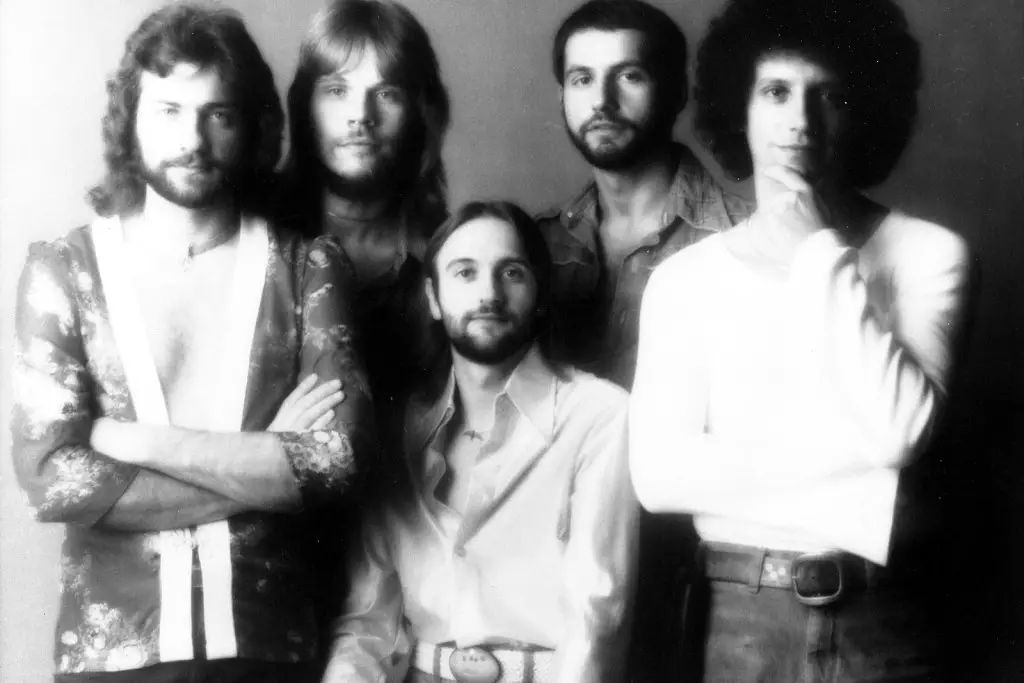
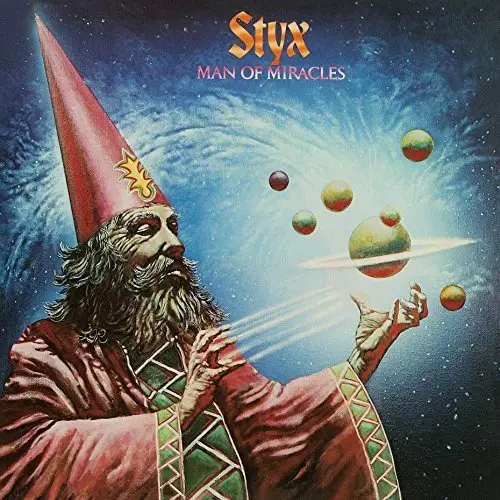 Styx — Man Of Miracles (1974)
Styx — Man Of Miracles (1974)
Before hitting it big in the late 70s, and early 80s with their seminal Arena/Classic Rock-oriented albums The Grand Illusion, Pieces Of Eight, Cornerstone, and Paradise Theater, Styx was a ballad centric Progressive Rock band. Before the addition of low-key guitar hero, Tommy Shaw, who completely changed the trajectory of the band, lead guitar duties were handled by Chicago native, John Curulewski, who also was one of the founding members of the band. Of Styx’s early records, Man Of Miracles is the perfect blend of their early Progressive stylings, paired with the dramatic flourishes of Dennis DeYoung, with light touches of the harder edge to come. Also of note, this is Styx’s last album for the indie label, Wooden Nickel Records. Earlier in the band’s career, singer, and primary songwriter, Dennis DeYoung, steadfastly controlled the band’s direction, but with the release of Man Of Miracles, James “JY” Young began to step into the spotlight as a songwriter, and his presence is more readily felt on harder-rocking tracks such as “Rock & Roll Feeling, “Havin’ A Ball,” “A Man Like Me,” and “Southern Woman, and the title track, “Man Of Miracles” As the 70s wore on, it would become more and more apparent that Styx was to be a band who would be defined by its duality, never fully able to decide which direction it should take musically, all the while garnering tremendous mainstream success, and in this lies what makes Styx unique. Man Of Miracles is the first album in a long line that would showcase that paradigm.
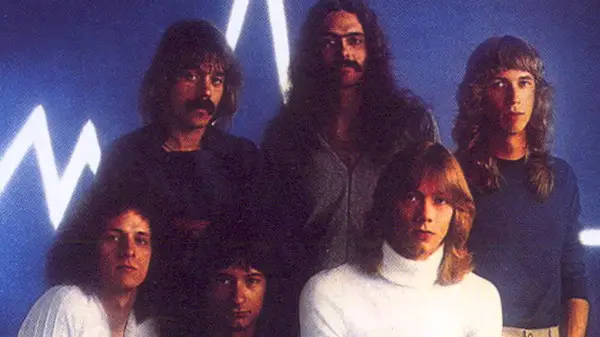
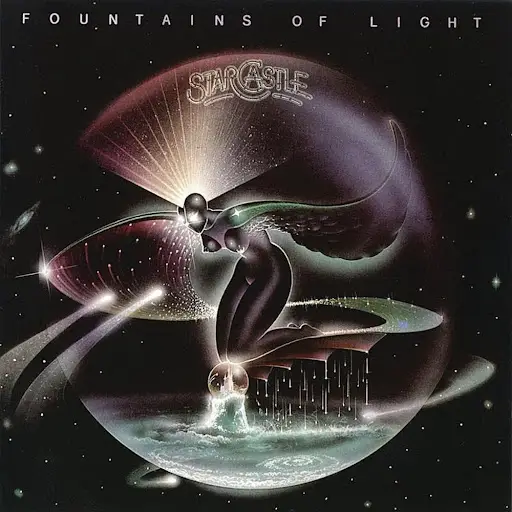 Starcastle — Fountains Of Light (1977)
Starcastle — Fountains Of Light (1977)
If you’re a fan of late 70s Progressive Rock, which by that point, had gone full-on synth, then you’ll be a big fan of the American Progressive Rock outfit, Starcastle. On the surface, Starcastle had it all — a veteran singer and frontman in Terry Luttrell, who served as vocalist for REO Speedwagon from 1968-1972, programming, and synth wiz, Herbert Schildt, a solid rhythm section in Gary Strater (bass), and Stephen Tassler (drums), and dueling guitarists Stephen Hagler, and Matthew Stewart. The band had gained very solid traction with their first release, 1976’s Starcastle, and had just hired renowned producer, Roy Thomas Baker, who had been working with Queen to great success. Unfortunately, the sessions were marred by drama, which included a car accident on an icy mountain road, which sent bassist Gary Strater to the hospital. Reportedly, the making of Fountains Of Light was difficult from day one, still, Starcastle, with the help of Roy Thomas Baker did complete the album, and in January of 1977, Fountains Of Light was released. While the album is well regarded by Pro Rock diehards retrospectively, it was something of a dud upon its release. Most critics were relatively bored by its sound, which was often likened to late-70s megaband, Yes. While the album is most definitely a product of its time, looking back, Fountains Of Light can be considered one of the better, and certainly more well-produced records of its era, and genre. It’s also worth noting that Starcastle had some of the best album art of any Progressive Rock act of the time.

 Nektar — Remember The Future (1973)
Nektar — Remember The Future (1973)
True fans of Progressive Rock music will know that German import, Nektar, is about as good as it gets, even though they never have seemed to achieve the mainstream success they rightfully deserve. Dating back to 1971, and as recently as 2020, Nektar has released a total of fifteen excellent studio records, but they hit the mark with the release of their 1973 classic album Remember The Future. Oftentimes, when casual fans think of Prog Rock, they think of Pink Floyd’s Dark Side Of The Moon (1973), or Rush’s 2112 (1976), but if you’re looking to dig deeper, Nektar is the place to start. Rush is probably the top of the proverbial Progressive Rock heap, and when it comes to 2112, they are often heralded for their pioneering style, which included one continuous piece of music. Now, Rush deserves all of their achieved accolades, but did you know that a full three years earlier, Nektar also recorded, and set the precedent for a continuous piece of music comprising the totality of a Prog Rock record? When it comes to Remember The Future, we are looking at a pioneering record, loaded with fantastic Prog Rock earworms just waiting to crawl their way into your earholes. The album itself was released on the indie label, Bacillus Records, so it never really stood a chance to break the mainstream. So, if you’re a fan of Prog Rock or German Kraut Rock, Remember The Future is the album for you. Take the journey.

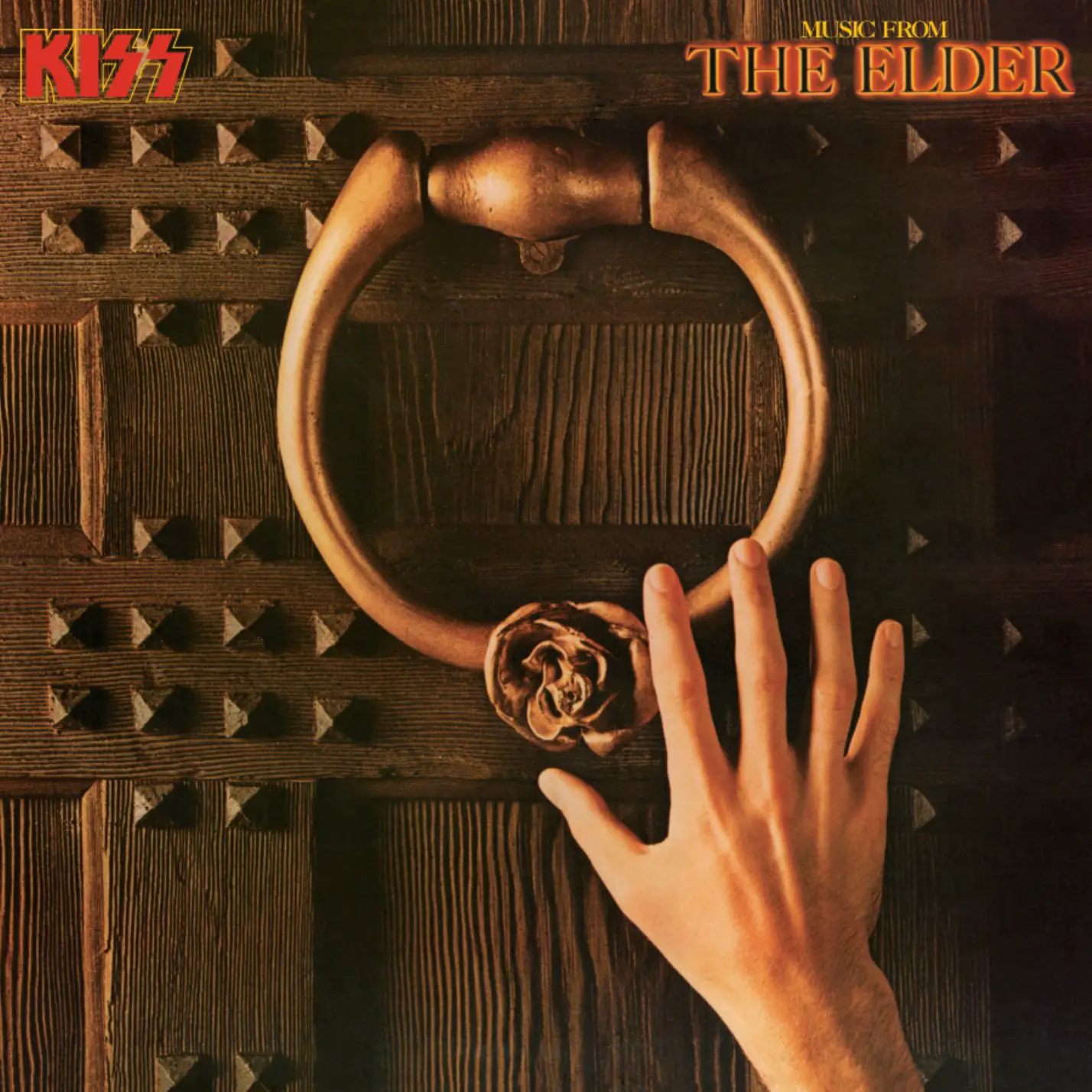 KISS — Music From “The Elder” (1981)
KISS — Music From “The Elder” (1981)
Fans of Prog Rock and KISS fans alike may be surprised to see KISS’ 1981 disaster turned unintentional Progressive Rock masterpiece, Music From “The Elder,” on this list. A lot has been made of this record over the years — rightfully so — what were they thinking? Music From “The Elder” has been an especially hot topic of late in both KISS and classic rock circles as the album just turned forty years of age. Still, after forty years, Music From “The Elder” remains of the most divisive, yet distinctive Rock records, of any genre, period. Some call it, “One of the worst records ever made,” while others champion it as an unintentional gem, made by a directionless band, who stumbled upon a pot of gold at the end of the Prog Rock rainbow. Regardless of which side of the spectrum you fall on, the fact remains — Music From “The Elder” is a fantastic Progressive Rock artifact, even if it was an unintentional one. At the time, the band wanted to prove to critics, and peers alike that they had the chops to be more than a meat and potatoes Rock band. While this line of thinking should be generally thought of as a “fool’s game,” the truth is, Paul Stanley, Gene Simmons, Ace Frehley, and Eric Carr, with the help of producer, Bob Ezrin, did succeed in their quest. What KISS didn’t count on was alienating their fanbase in the way that they did. Still, if the band had stood its ground, they would have qualified their artistic vision. Regardless of if Music From “The Elder” had tanked commercially, and critically or not, had the members of KISS stood by the record, retrospective reviews, and fan reaction may have been different. An example of this is the initial reaction to KISS’ follow-up record, Creatures Of The Night. At first, fans hated it, but the band stood by it, and kept championing it as “good.” Eventually, the rest of the world came around, and realized the record was in fact “good.” Had the members of KISS chosen to bury Creatures Of The Night in the way they had Music From “The Elder,” even though Creatures Of The Night is a Heavy metal record, its fate would have been the same as Music From “The Elder.” Instead, KISS took the easy way out and buckled. What can I say? People like to led around like bell cows. They need to be told what to like. Don’t be a sheep — Music From m”The Elder” is a sensational Prog Rock record. For better or worse, it’s earned its place in the limelight.
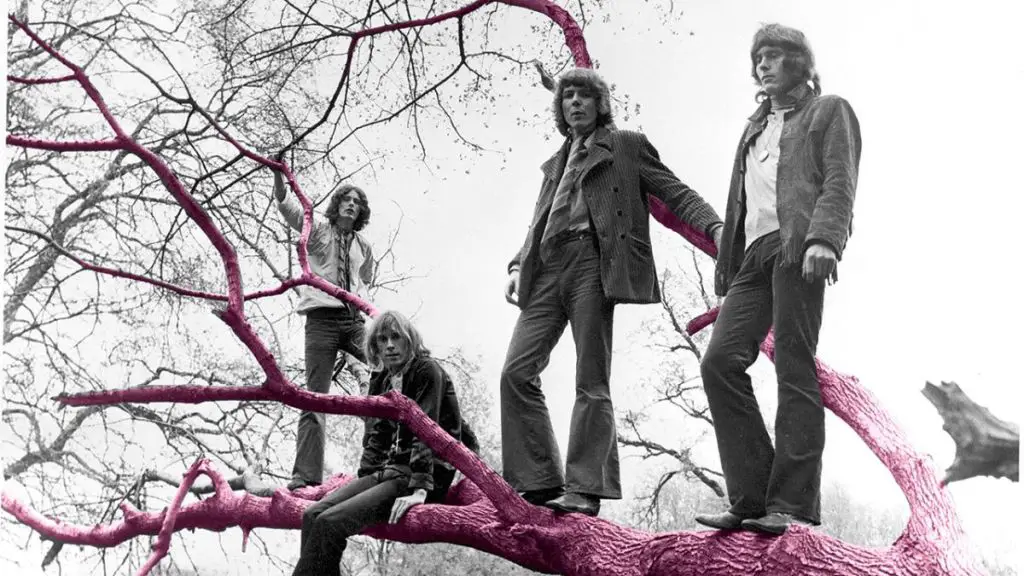
 Caravan — The Land Of Grey And Pink (1971)
Caravan — The Land Of Grey And Pink (1971)
As far as Progressive Rock music goes, the conversation will always begin with the likes of Rush, Pink Floyd, and Yes — rightfully so. After you’ve had that initial conversation though, and you’ve decided you want to dig deeper, in terms of musicianship, quality songwriting, and consistency of output, Caravan takes the cake. English stalwarts of the legendary Canterbury Scene, Richard (bass), and David Sinclair (organ), along with Pye Hastings (guitar), and Richard Coughlan (drums) formed one of most seminal quartets in Progressive Rock history. If Progressive Rock was the defining sound of Rock Music in the early 70s, then Caravan was carrying the torch in ways that few others were at the time. Think of them as the true purveyors of Prog, if you will. Simply put, if you haven’t heard Caravan’s sinfully underrated, and enormously influential record, The Land Of Grey And Pink — change that immediately. The sonic textures are subtly nuanced in ways that would bring Geddy Lee, and Roger Waters to their knees. Musically, The Land Of Grey And Pink is both melodically playful, and whimsical. Pye Hasting’s guitar work and tone tonic phrasing are gently synthetic and skillfully interwoven with Richard Sinclair’s jazzy bass work. While The Land Of Grey And Pink is not one continuous piece of music, similar to Pink Floyd’s Dark Side Of The Moon, the record should be listened to in its entirety, and if you can — with noise-canceling headphones. You’ll probably require multiple listens to truly “get it,” and if you get it…when you get it…you’re in for a treat. This record is all that we love about Yes, Jethro Tull, and more, all rolled into one piece of fabulously, decisively British Prog-Rockery. Dig it.
One of the overarching themes which permeate Progressive Rock music is the blending of genres, and open-mindedness that comes along with it. With a little luck, your mind has been opened up just a bit wider today than it had been before.
At its core, music is supposed to satisfy, that it is say – it’s comforting. More so, it’s supposed to be fun. And by that token, where’s the fun in stagnating? If there is one takeaway regarding Progressive Rock music, it’s that it’s not nearly as pretentious as it’s made out to be. No, complex instrumentation and long musical interludes do not mean that perpetrators of this genre are purporting to dwell on a higher plane of existing than the rest of us.
Prog Rock, like all other genres of Rock music, has shifted, changed, and continuously recreated itself over, and over again throughout the last half-century — its character arch is continuously shapeshifting in ways that are hard to understand, and that lies the challenge we face as the listener — to attempt to grapple with something which steadfastly refuses to even consider giving us a foothold.
Understand it if you can, be damned if you can’t.
Either way — Prog Rock doesn’t hope to care. It knows that music is supposed to be comforting, but chooses to seek to elude comfort, and you as the listener must choose to forgo comfort as well. The cast of players may change, but the mission statement will remain the same — to create something different, something outside the box, and something which continuously breaks the mold — without pretense. Prog Rock is a journey, and like life, it has many stages. If you’re up for it — strap in, and see where it takes you.
What have you got to lose?

Check out part two of this series, A Farewell To Kings: Five Underappreciated Progressive Rock Albums of the 70s & 80s Part II, here: https://vwmusicrocks.com/a-farewell-to-kings-five-underappreciated-progressive-rock-albums-of-the-70s-80s-part-ii/
– Andrew Daly (@vwmusicrocks) is the Editor-in-Chief for www.vwmusicrocks.com and may be reached at [email protected]

Remember The Future and The Land Of Grey And Pink are frequent flyers in my home and car stereos. Both excellent albums.
Great job Andrew. I have always said that Nektar is one of my very favorite bands. In 2004 me and my brother were lucky enough to see them and Caravan on tour in North America. Several years later we got to meet Roye Albrighton and Ron Howden on a 2015 Cruise To The Edge vacation and the guys from Caravan were also there and remembered us from 11 years before. I will tell anyone who will listen, never miss these Progressive Rock cruises, they are defining moments in my musical life! Haven’t yet met Derek “Mo” Moore yet, but will be seeing them in 2022 when Nektar tours again. A must see for me!
I love prog rock! Thanks for the reminder.